Hispanic Heritage Month Film Festival
This year's film festival will take place on Friday, September 12th, Saturday, September 13th, Wednesday, September 17th, and Wednesday, September 24th. The screening on Friday will start at 5:00 p.m., on Saturday, the first film will begin at 2:00 p.m., and on Wednesdays, the film will begin at 5:00 p.m. Admission is free. Films are in Spanish with English subtitles.
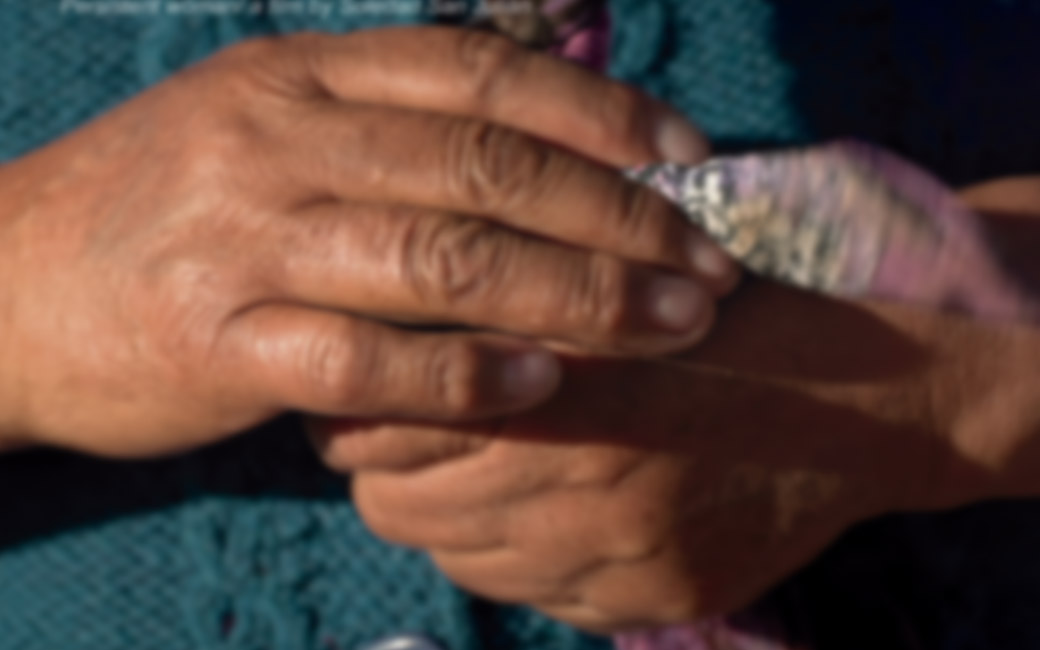
We are thrilled to announce the 2025 Hispanic Heritage Month Film Festival at Towson University. Boundaries of the Self: Body, Power, and Identity the Americas. It is proudly organized, and presented by the Department of Languages, Literatures & Cultures at Towson University. This event is made possible by the generous sponsorship of PRAGDA, the Spanish Film Club, the College of Liberal Arts, the Department of History, the Center for Student Diversity, and the Department of Languages, Literatures & Cultures.
This edition of the festival brings together five provocative films that challenge the limits between the personal and the political in contemporary Latin America. Through bold aesthetics and powerful storytelling, Ema (Chile), Temblores (Guatemala), Carajita (Dominican Republic–Argentina), La Cocina (USA–Mexico), and Yvy Maraey (Bolivia) portray bodies in conflict, fractured families, and systems of power that traverse sexuality, race, labor, motherhood, and belonging. All the films are in Spanish with English subtitles.
These films share a contemporary sensibility that blends realism with poetry, denunciation with desire, and social drama with moments of intense intimacy. The result is an emotional and political map of a region marked by inequality, but also by constant reinvention of subjectivity.
Let’s celebrate the power of film to bridge cultures and foster understanding. We look forward to seeing you at the Hispanic Heritage Month Film Festival!
Significance to humanities and arts programs at Towson University
With a growing Hispanic population, both in Maryland and the US, this Festival celebrates their presence, influence, and heritage through a series of films that will spark conversations, which ultimately will help us understand the importance of this community in the US. From political to social and personal stories, these films explore what it means to be human, beyond cultures and languages, offering the opportunity to promote discussions from all disciplines in the Humanities.
Film Dates and Descriptions

Ema
Dir. Pablo Larraín (Chile, 2019)
Friday, september 12 (5:00 p.m.)
UU324
Join us early for snacks and beverages
UU329 | 4:00 P.M.
Ema (2019), by Chilean filmmaker Pablo Larraín, is a provocative exploration of desire, unconventional motherhood, and female power in a world marked by guilt and dislocation. Set in Valparaíso, the film follows Ema, a young dancer who, after returning her adopted son following a traumatic incident, embarks on a journey of emotional, sexual, and artistic liberation. Its fragmented narrative, explosive visual style, and reggaeton soundtrack create a sensorial experience charged with symbolism. Ema literally sets symbols of control on fire (traffic lights, cars) while challenging the roles imposed by traditional motherhood, marriage, and social morality. Mariana Di Girolamo delivers a hypnotic, physical performance as a woman determined to rewrite emotional rules through dance, desire, and calculated affective manipulation. The film invites critical debate on motherhood as a social construct, the body as a site of resistance, and art as a catalyst for radical change.
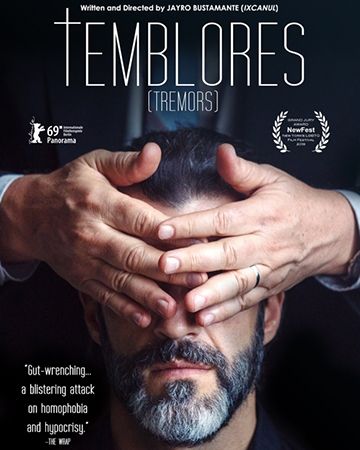
Temblores
Dir. Jayro Bustamante (Guatemala, 2019)
Saturday, september 13 (2:00 p.m.)
LA1201
Temblores (2019), directed by Guatemalan filmmaker Jayro Bustamante, offers a sharp critique of sexual and religious repression in a deeply conservative society. The film tells the story of Pablo, a married father who, after revealing his relationship with another man, is cast out of his home, loses his job, and is subjected to brutal conversion therapy. Set within the evangelical elite of Guatemala City, the story reveals how family love and religious faith can become instruments of control and violence. With a restrained aesthetic, sober performances, and introspective rhythm, Temblores avoids melodrama in favor of a raw and honest portrayal of its protagonist’s inner turmoil. The film is especially relevant to discussions of gender, religion, human rights, and Latin American cinema, offering a compelling case study on how social and religious structures shape identity.
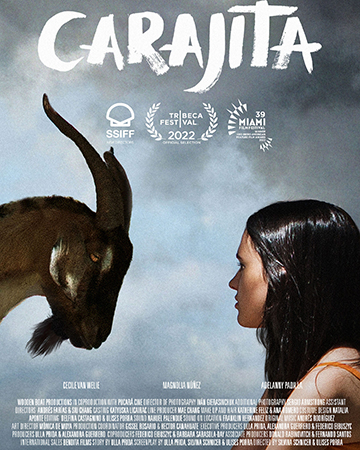
Carajita
Dirs. Silvina Schnicer & Ulises Porra (D.R.–Argentina, 2021)
saturday, September 13 (6:00 p.m.)
LA1201
Carajita (2021), directed by Silvina Schnicer and Ulises Porra, is a piercing drama that explores the tensions between class, race, and affection in contemporary Dominican society, where colonial hierarchies persist. The story centers on Sara, a white privileged teenager whose corrupt family relocates to Las Terrenas, and her seemingly close, loving relationship with Yarisa, her Black Dominican nanny, whom she considers "part of the family." This illusion of intimacy is shattered when Yarisa’s biological daughter Mallory disappears after a party, putting their emotional bonds to the test and exposing the invisible structure of privilege.
The film is notable for its elegant cinematography (by Iván Gierasinchuk and Sergio Armstrong), visual tone of muted greens and blues, and powerful performances. Through a restrained yet tense narrative, Carajita delivers a social critique through silences, daily gestures, and body language. It provides an excellent opportunity for analyzing Latin American and Afro-Latinx sociocultural realities through cinema and visual culture and raises questions central to postcolonial theory. The film invites debate about how affection and structural racism coexist in relationships marked by centuries of hierarchy and resonates with films like Roma (2018) and Libertad (2021).
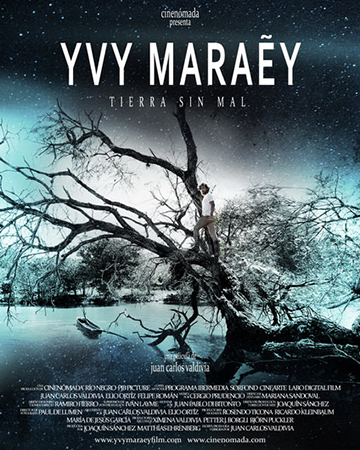
Yvy Maraey: Land Without Evil
Dir. Juan Carlos Valdivia (Bolivia, 2014)
Wednesday, september 17 (5:00 p.m.)
LA1201
Yvy Maraey: Land Without Evil (2014) is a Bolivian film blending documentary, fiction, and performance to offer a powerful meditation on identity, representation, and intercultural encounter. Director Juan Carlos Valdivia embarks on a journey through southeastern Bolivia with a Guaraní guide, seeking not only an indigenous community but also an alternative way of seeing, listening, and understanding the world. Along the way, the film questions cinema’s role in representing the “Other” and exposes the implicit hierarchies between observer and observed. More than a physical location, the “Land Without Evil” is a spiritual state rooted in Guaraní cosmology.
This film is especially relevant for students interested in critically exploring colonialism (especially visual colonialism), otherness, intercultural respect, and the place of Indigenous knowledge in the modern world. Its ethical and aesthetic approach challenges not only Latin America, but our own ways of storytelling, seeing, and coexisting in diverse societies.
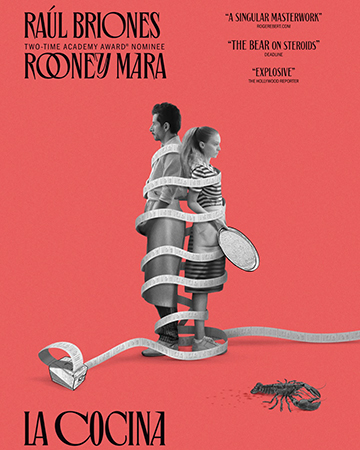
La Cocina
Dir. Alonso Ruizpalacios (U.S. Latines, 2024)
Wednesday, september 24 (5:00 p.m.)
LA1201
Renowned director Alonso Ruizpalacios sets the action of this film in the microcosm of a New York restaurant kitchen, which serves as a synecdoche for the broader structures that govern social dynamics and relationships in the United States. This confined space allows Ruizpalacios to explore the tensions that define American society: class divisions, social barriers, structural racism, labor precarity, immigrant alienation... but most of all, the dividing line between those who cook and those who serve or consume, which highlights systemic inequalities and contradictions. This line also separates the film’s protagonists: Pedro, an undocumented immigrant, and Julia, an American waitress, whose lives intersect through moments of passion, betrayal, and revelation.
Acknowledgments
This event is possible thanks to the generous and kind support of:
- College of Liberal Arts
- Department of Languages, Literatures and Culture
- Department of History
- Center for Student Diversity
- Pragda
- Spain Arts and Cultures
